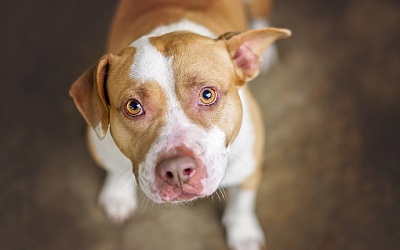Every homeowner hopes to never have to file a home insurance claim, but accidents do happen, and some factors increase the likelihood they will occur. Here are 10 surprising things that can affect the types of claims you might file and how much you pay for home insurance coverage.
1. Your Dog’s Breed
Although your canine companion may be a much-loved member of your family, depending on its breed, you may have difficulty getting home insurance. Your homeowner insurance includes liability protection to help you if you are sued by someone whom your dog has bitten or attacked. However, many home insurance companies won’t insure homeowners who own specific breeds (e.g., American Staffordshire Terriers, Presa Canarios, Pit Bulls, and Rottweilers) or dogs with a history of aggressive behavior or biting.
Some companies may require customers who own these dogs to sign a liability waiver for dog bites. This means that if the dog bites someone, the home insurance company will not be required to cover the resulting expenses and the homeowner will have to pay for them.
2. Exotic Pets
Certain dog breeds aren’t the only pets that could affect your home insurance. Other pets could also attack, injure, or even kill someone, and therefore could impact your insurance at well. If your household includes any species classified as an “exotic pet,” such as snakes, spiders, or amphibians, the liability portion of your homeowner insurance could be affected. Although liability insurance covers costs resulting from an injury to an individual that occurs at your home, coverage may not extend to injuries caused by exotic pets, or it may cost more.
3. Firearms
If you own firearms and store them in your home, it could impact your homeowners insurance policy, but perhaps, not in the way you would expect. Many insurance companies don’t ask whether you own guns, and you won’t pay more or less on the liability portion of your insurance because you own a gun.
Guns are usually treated as part of the general property covered by your homeowners insurance. However, the value of your antique or collectible firearms may exceed your valuable items sublimit. If this is the case, you may want to supplement your coverage with an insurance rider to ensure adequate protection if the firearms are damaged or stolen.
4. Wood-Burning Stoves
A wood-burning stove provides ambiance and warmth, but if it’s your main source of heat, your application for insurance could be declined. If it’s a secondary source of heat, be prepared to fill out a wood stove questionnaire. One way to reduce the higher premium that may accompany a wood-burning stove is to show proof that a licensed installer installed it and that it meets the code requirements of your area. Also confirm to your provider that you have smoke detectors and a fire extinguisher nearby.
5. Swimming Pools
Although a backyard swimming pool can be a wonderful addition to family barbecues and summer parties, keep in mind that your pool has an impact on your home insurance. In fact, if your home has an in-ground pool, it must be fenced or your coverage could be declined. When installing or replacing a fence, look for one that is at least 4 feet high with gates that are both self-closing and self-latching, the U.S. Consumer Product Safety Commission recommends.
6. Trampolines
Another popular pastime is trampolining, but having a trampoline could make it difficult to get home insurance, especially if your trampoline doesn’t have a safety net. Trampoline-related injuries have soared nationwide, and insurers have taken note. Even if you can get a home insurance policy with a trampoline in your backyard, the policy may not cover any losses resulting from its use.
7. Tree Houses
Whether you’re planning to build a tree house for your kids or grandkids or to buy a home that already has one on the property, be forewarned: A tree house or a tree fort can mean a more costly premium. As with swimming pools and trampolines, having a tree house on your property increases the chance that someone could be injured at your residence.
8. Ziplines
Ziplining is an outdoor activity that has increased in popularity over the past few years, but it has also led to increase in the number of home injuries. In the United States, 30 percent of zipline injuries occur in backyards or on farms. Having a zipline in your own back yard could impact the liability portion of your homeowner insurance.
9. Distance from the Fire Department
If your home is far away from a fire department, this could affect your home insurance premium. This is also true if your home is far away from a water source (e.g., a hydrant), as this increases the chance that your home will suffer more extensive (and expensive) damage if a fire occurs. In some states, such as Maine, even the quality of the community’s fire protection services could impact your insurance premium.
10. Where You Live
Your home’s location is another important factor in determining your home insurance rate. That is because risks vary depending on geographic location. These risks include losses due to severe weather events or crime. Relocation is probably not a practical or plausible option, but you can still lessen the impact of your location on your insurance. For example, installing storm shutters or fortifying your roof if you live in an area prone to bad weather could qualify you for a discount on your home insurance, as could installing a security system.
If you own a home, you know that insurance is a crucial part of protecting what you’ve worked hard to build. Without adequate coverage, you could find yourself responsible for all sorts of expenses in the event of a loss or an injury. That’s why it’s so important to purchase the right home insurance coverage. You don’t want to expose yourself and your family to unnecessary and potentially financially devastating risk.
Planning on moving soon? Make sure you understand how your home insurance can be affected.
Disclaimer: This article is intended to be informational in nature, may not be current, and is subject to change without notice. Please contact your agent or carrier for your specific coverage implications.







It’s great that you pointed out how the home’s location is an important factor in determining the home’s insurance rate. I read about home insurance before and I got interested in getting insurance for our house too. From what I’ve researched before, it seems there are homeowners insurance brokers for agencies now.
Thanks for pointing out that firearms would only make significant changes to my home insurance if they are considered as pieces of antique items. I’m currently packing up my furniture in preparation to move out of the apartment that I lived in for almost 9 years now. It’s a good thing that most of my stuff are relatively new and wouldn’t need to be filed as valuable antiques when getting a home insurance.